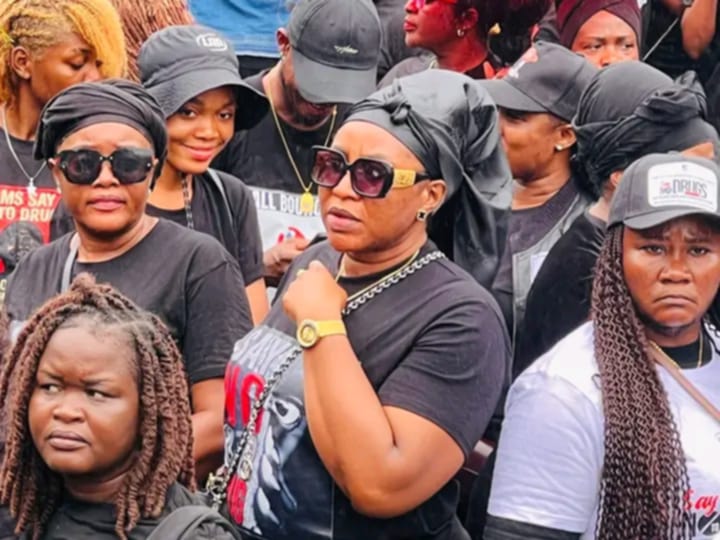Liberian Women Join Nationwide Protest Against Drug Abuse

August 7, 2025
By Jeremiah S. Cooper
Monrovia: Hundreds of Liberian women from diverse backgrounds on Thursday took to the streets in a nationwide protest against the alarming increase in drug abuse among Liberian youth.
The women who were dressed in all black are calling on the Liberian government and stakeholders to take urgent and decisive action against the rampant increase in the use of illicit drugs and substance abuse.
The peaceful demonstration saw the women marching from various communities and streets to Capitol Hill, where the seat of the government of Liberia is. It also brought together youth groups, civil society organizations, health workers, educators, religious leaders, and concerned citizens.
Protesters carried placards with messages such as “Say No to Drugs,” “Save Our Future,” and “Zogos Need Help, Not Abandonment.” The march was part of a broader national campaign aimed at raising awareness about the devastating impact of narcotics especially the impact of the drug “kush” on Liberia’s youth and communities.
Protesters say the protest was a wake-up call to government institutions, especially the Ministry of Health, the Liberia Drug Enforcement Agency (LDEA), and the Ministry of Justice, to prioritize the fight against illegal drugs and substance abuse.
Speaking at the protest in Monrovia, a youth activist, Mary Sackie, described the current wave of drug addiction as a “silent epidemic” threatening the nation’s future. “We are losing a whole generation to drugs. If we don’t act now, we will pay a heavier price as a country. We need rehab centers, stronger drug laws, and national support for victims,” she said”.
The protesters are expected to submit a petition to the legislature, demanding the full implementation of the amended Controlled Drugs and Substances Act of 2014, increased funding for rehabilitation programs, and a national task force to fight drug trafficking.
The protest also shed light on the plight of “Zogos” a term used locally to refer to at-risk youth living in ghettos or on the streets, many of whom suffer from addiction. Several former zogos joined the march, sharing emotional stories of recovery and urging the government to treat addiction as a public health issue rather than solely a criminal matter.



